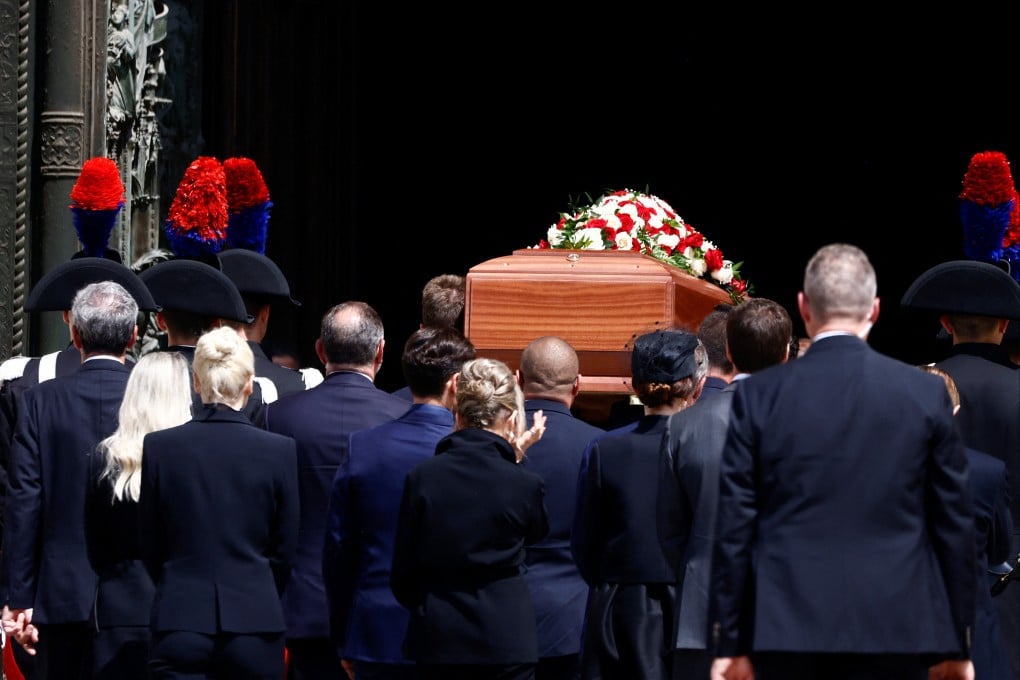Italian ex-PM Silvio Berlusconi given a state funeral in city where he made his billions
- Thousands of people outside erupted in applause as a sign of respect as Berlusconi’s flower-draped casket was hoisted out of the hearse and into the cathedral
- Berlusconi, one Italy’s the most influential figures, died at the age of 86 on Monday in a Milan hospital where he was being treated for chronic leukaemia

Silvio Berlusconi was honoured on Wednesday with a state funeral in Milan’s Duomo cathedral and a day of national mourning, as his legacy – positive or negative – was being hotly debated among Italians.
Tens of thousands of people outside the Duomo and within erupted in applause as a sign of respect as Berlusconi’s flower-draped casket was hoisted out of the hearse and into the cathedral. His children and companion teared up as the casket was placed in front of the altar.
Most Italians identify Berlusconi, a media mogul, soccer entrepreneur and three-time former premier, as the most influential figure in Italy over recent decades. But they remain sharply divided on whether his influence was for the better or worse, extending to whether the three-time former premier merits all the fuss and ceremony.

Berlusconi died at the age of 86 on Monday in a Milan hospital where he was being treated for chronic leukaemia. His family held a private wake on Tuesday at one of Berlusconi’s villas near Milan, the city where he made his billions as the head of a media empire before entering politics in 1994.
Milan Archbishop Mario Delpini didn’t gloss over Berlusconi’s complicated legacy in his eulogy, saying he was a businessman who found success and failure, a politician who won and lost, and a notoriety-seeking personality who had admirers and detractors, “those who applaud him and those who detest him.”
“But in this moment of farewell and prayer, what can we say about Silvio Berlusconi? He has been a man: a desire for life, a desire for love, a desire for joy,” Delpini said. “He is a man and now he meets God.”
Berlusconi split Italy, he insulted adversaries for 30 years, he criminalised the magistrates and he did not recognise laws.
Political opponents are questioning not only the decisions of Premier Giorgia Meloni’s government to hold a state funeral – an honour that can be afforded all former premiers – but to also declare a national day of mourning, which is more rarely invoked. In the case of the latter, flags are flown at half-staff and all political events not involving charity are put on hold, but it is otherwise business as usual.
